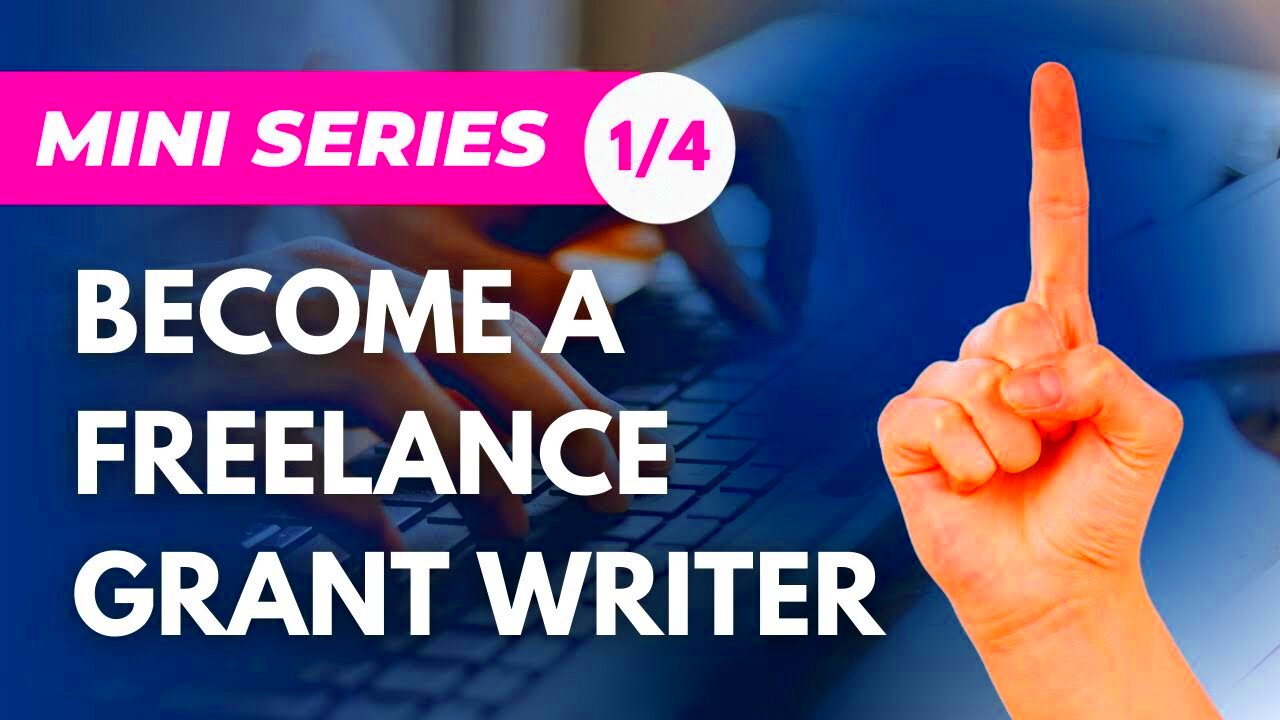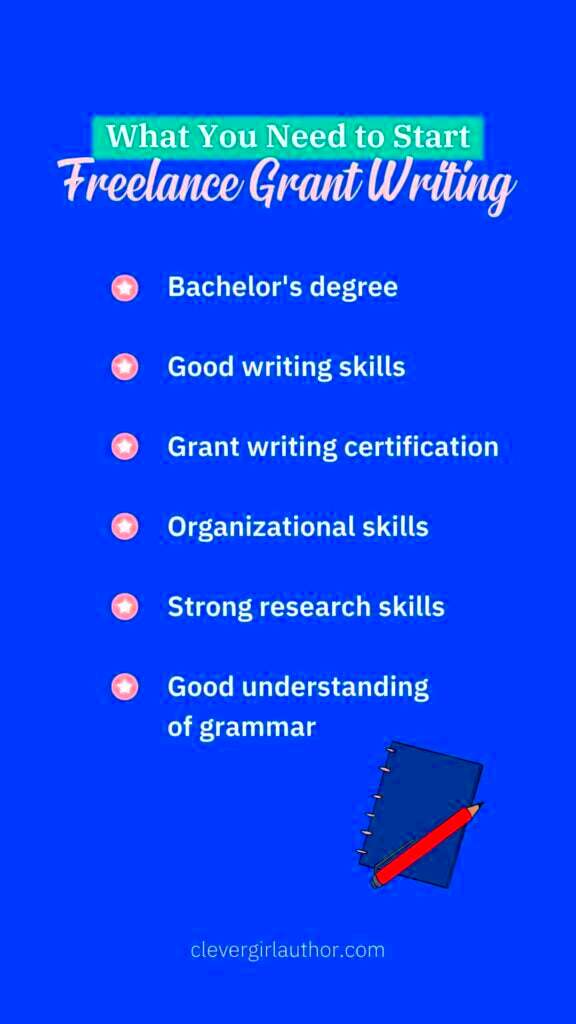As a freelance grant writer you have a role in helping different organizations and projects secure funding. Your main responsibility is to create persuasive grant proposals that convince funders to support certain initiatives. This job entails more than simply putting words on paper; it demands a thorough grasp of the organizations mission the capacity to explore funding options and the talent to effectively communicate the projects worth.
Based on my personal journey I find the position to be both fulfilling and demanding. I recall my initial major assignment where the pressure was intense. The excitement of witnessing a meticulously crafted proposal materialize and ultimately securing funding was unparalleled. This line of work requires meticulousness, perseverance and a sincere dedication to assisting others in reaching their objectives.
Essentially your role is to connect the requirements of the organization with the expectations of the funder. This includes.
- Understanding the funder’s priorities and guidelines.
- Conducting thorough research on the organization and its needs.
- Writing clear, persuasive, and detailed proposals.
Working as a grant writer gives you the freedom to choose your projects and work on different assignments. However it also brings with it a set of responsibilities. Its not solely about putting words on paper; its about playing a role in the success of different initiatives and groups.
Essential Skills and Qualifications

To thrive as a freelance grant writer you require a combination of key skills and credentials. These go beyond mere formalities; they are crucial for creating impactful proposals that truly make an impression. Allow me to share what I consider vital based on my experiences.
- Writing Skills: Your ability to write clearly and persuasively is paramount. The proposals you craft must be well-organized and compelling.
- Research Skills: Understanding the nuances of each project and the funder's requirements requires thorough research.
- Attention to Detail: Every detail matters in grant writing. From formatting to content accuracy, attention to detail ensures that your proposal meets all the requirements.
- Time Management: Freelance work often means juggling multiple projects. Effective time management helps in meeting deadlines without compromising quality.
- Knowledge of Grant Writing Software: Familiarity with tools like grant management systems can be beneficial.
While the specific qualifications may differ a background in writing, communications or a similar area is usually beneficial. Life experiences such as involvement in projects or possessing a talent for writing can prove to be advantageous too.
Also Read This: Are There Any Facebook Like Gigs on Fiverr Anymore?
Finding Your First Grant Writing Clients

Securing your initial clients as a freelance grant writer may seem intimidating, but there are effective strategies to streamline this journey. During my early days I encountered numerous obstacles but with determination and the approach everything changed for the better.
Here are a few suggestions that worked for me and could be beneficial for you as well.
- Leverage Your Network: Reach out to your existing contacts in the nonprofit sector. Personal referrals can be incredibly effective.
- Join Professional Groups: Engaging with grant writing communities and professional groups can open doors to opportunities and provide valuable insights.
- Create a Strong Online Presence: Having a professional website and a strong LinkedIn profile can help attract potential clients. Share your knowledge through blogs or articles to showcase your expertise.
- Offer Pro Bono Work: Initially, you might consider offering your services for free or at a discounted rate to build a portfolio and gain testimonials.
- Apply for Freelance Platforms: Websites like Fiverr and Upwork can be good places to find initial clients. Just ensure that your profiles and proposals stand out.
Getting things going can be tough but if you stay determined and use approaches you can slowly establish a strong clientele. Keep in mind that each project brings a chance to enhance your skills and develop.
Also Read This: What is Conversion Rate in Fiverr?
Setting Your Rates and Managing Your Finances

Determining your fees as a freelance grant writer can be quite a challenge. When I began my journey I struggled with finding the right price. Its important to recognize worth while remaining competitive in the industry. I opted to begin with a rate and make adjustments as I accumulated more experience and positive feedback.
Here are a few suggestions to assist you in determining your prices and handling your finances efficiently.
- Research Market Rates: Look at what other freelance grant writers are charging. Websites like Fiverr and Upwork can provide insights into current rates.
- Calculate Your Costs: Consider all your expenses, including software, internet, and office supplies, and ensure your rates cover these costs while also compensating you fairly.
- Set Clear Payment Terms: Decide whether you’ll charge per hour, per project, or on a retainer basis. Clear payment terms prevent misunderstandings and ensure smooth transactions.
- Keep Track of Your Earnings: Use financial tools or spreadsheets to monitor your income and expenses. This will help you stay organized and prepare for tax season.
- Save for Taxes: As a freelancer, you're responsible for your own taxes. Set aside a percentage of your earnings to cover tax obligations.
Handling money matters as a freelancer calls for careful thought and preparation. I recall the early struggles of juggling expenses and fluctuating earnings but over time I grasped the significance of creating a budget and having a vision. With a proactive and systematic approach you can establish a fulfilling and long lasting freelance journey.
Also Read This: Understanding Fiverr Fees: What Fees Does Fiverr Take?
Creating Effective Grant Proposals

Crafting grant proposals is a crucial aspect of the grant writing process. Its the moment when you present your argument to potential funders and persuade them that the project you are advocating for deserves their backing. In my experience the secret to a proposal rests in having a profound understanding of the funders expectations and the specific requirements of the project at hand.
Here are some tips for creating proposals that grab attention.
- Understand the Funder’s Priorities: Each funder has specific goals and interests. Tailor your proposal to align with their priorities.
- Develop a Strong Narrative: Your proposal should tell a story. Clearly articulate the problem, your solution, and the impact of the project. Use data and examples to support your narrative.
- Follow Guidelines: Adhere strictly to the funder’s guidelines regarding format, content, and submission requirements. Non-compliance can lead to rejection.
- Include a Budget: Provide a detailed budget that justifies the funding request. Break down expenses and explain how the funds will be used efficiently.
- Proofread and Edit: Ensure your proposal is free of errors. A well-written, error-free proposal reflects professionalism and credibility.
When I was starting out I dedicated a lot of time to refining every proposal I made and it was worth it. Creating a proposal is a blend of creativity and analytical thinking and as you hone your skills you’ll develop your unique approach. The joy that comes from witnessing your proposal thrive is truly fulfilling.
Also Read This: What is Out of Office in Fiverr?
Building a Strong Portfolio
Creating an impressive portfolio is crucial to demonstrate your abilities and draw in prospective clients. When I first began my journey I discovered that a neatly arranged and visually appealing portfolio could greatly enhance my chances of securing new opportunities.
Here are a few tips to create a portfolio that catches attention.
- Showcase Your Best Work: Include samples of your most successful grant proposals. Highlight projects that received funding and had a significant impact.
- Include Testimonials: Positive feedback from clients can greatly enhance your credibility. Reach out to previous clients and request testimonials to include in your portfolio.
- Organize Your Portfolio: Present your work in a clear and organized manner. Use categories or tags to make it easy for potential clients to find relevant examples.
- Keep It Updated: Regularly update your portfolio with new projects and achievements. An up-to-date portfolio reflects your current skills and experience.
- Highlight Your Unique Selling Points: Emphasize what sets you apart from other grant writers, whether it’s a particular expertise or a unique approach to writing.
Building and keeping a portfolio takes work but it’s an effective way to highlight your skills and open doors to new possibilities. I still vividly recall the sense of accomplishment I felt when my portfolio started taking shape and that feeling of pride motivates me to keep it up to date.
Also Read This: How to Unpause Your Fiverr Account: A Step-by-Step Guide
Marketing Yourself and Networking
Promoting your services as a freelance grant writer is crucial as the actual writing. When I began my journey I quickly learned that possessing the skills wasn't sufficient; I had to make sure to spread the word about them. Establishing connections and marketing yourself may seem daunting at first but with some planning and determination it becomes more feasible.
Here are some strategies to promote yourself and build connections.
- Leverage Social Media: Platforms like LinkedIn, Twitter, and Facebook can be powerful tools for showcasing your expertise. Share valuable content, engage in discussions, and connect with industry professionals.
- Attend Industry Events: Conferences, workshops, and seminars are great for meeting potential clients and peers. In-person interactions can build stronger relationships than online connections alone.
- Create a Professional Website: A well-designed website with your portfolio, testimonials, and contact information serves as a digital business card. It’s a central place where potential clients can learn more about you and your services.
- Join Professional Associations: Organizations like the Grant Professionals Association can provide networking opportunities and resources to enhance your skills and visibility.
- Ask for Referrals: Don’t hesitate to ask satisfied clients for referrals or testimonials. Word-of-mouth recommendations can be incredibly effective in gaining new clients.
Building a network is an ongoing journey that requires patience to establish meaningful relationships. I recall attending my networking event where I felt anxious at first but ended up forging connections that contributed to the growth of my business. The secret lies in being consistent and authentically interacting with people, in your industry.
Also Read This: How to Get People to See Your Fiverr Gigs
Common Challenges and How to Overcome Them
Every freelance grant writer encounters obstacles on their path. Whether its juggling time constraints or handling challenging clients this journey is brimming with opportunities for growth. I have encountered my fair share of difficulties yet each one has imparted me with insights that have played a role in shaping my professional journey.
Here are a few hurdles that people often face along with some suggestions on how to tackle them.
- Dealing with Rejections: Rejections are part of the job. Instead of getting discouraged, use them as learning opportunities. Analyze feedback and improve your future proposals.
- Managing Time Effectively: Juggling multiple projects can be overwhelming. Create a schedule, prioritize tasks, and use productivity tools to stay organized and meet deadlines.
- Handling Difficult Clients: Sometimes clients have unrealistic expectations or provide unclear feedback. Communicate openly and set clear guidelines from the start to avoid misunderstandings.
- Maintaining Consistent Work: Freelance work can be unpredictable. Build a financial cushion to manage lean periods and actively seek new clients to maintain a steady flow of projects.
- Keeping Up with Trends: The grant writing field evolves, and staying updated is crucial. Invest in continuing education and stay informed about industry trends and best practices.
Navigating through the hurdles is an inherent aspect of freelancing yet conquering them plays a role in fostering your development and tenacity. I have come to realize that tackling obstacles directly and being flexible in the face of changes are crucial for achieving lasting success. Welcome these challenges as chances to enhance yourself and evolve.
Also Read This: Do Fiverr Spells Work? A Comprehensive Guide
FAQ
Q: What qualifications do I need to become a freelance grant writer?
While having qualifications can be helpful they arent always a requirement. Its crucial to possess strong writing skills, a keen eye for detail and a solid grasp of grant procedures. Additionally prior experience in the nonprofit industry can prove advantageous.
Q: How do I find clients as a freelance grant writer?
To find clients you can tap into your network make use of social media join industry associations and explore freelance platforms. Creating an impressive portfolio and requesting referrals can also be beneficial in drawing clients towards you.
Q: What should I include in a grant proposal?
When writing a grant proposal it's essential to provide a summary of the project clearly outline the problem present your proposed solution include a comprehensive budget and highlight the expected results. Adhering to the funders guidelines is crucial.
Q: How can I handle difficult clients?
To handle challenging clients effectively its important to communicate clearly and establish expectations from the beginning. Timely and professional addressing of issues is crucial along with keeping a record of all agreements and feedback to prevent any misunderstandings.
Q: How do I price my services as a freelance grant writer?
When determining your rates it's important to research the market and take into account your level of experience and expenses. You have the flexibility to charge an hourly rate, a fee for each project or establish a retainer arrangement. Make sure your rates accurately represent your expertise and the standard of your work.
Conclusion
Starting out as a writers can be an exhilarating yet demanding journey. From determining your pricing and handling your finances to crafting compelling proposals and establishing a solid portfolio every aspect presents a chance to enhance and polish your abilities. My personal path has been marked by challenges, but every encounter has deepened my insight into the art and the field.
Keep in mind that achieving success in this area demands commitment, a thirst for knowledge and strong networking skills. Embrace the obstacles as essential steps in your journey and feel free to reach out for assistance from colleagues and mentors. By staying determined and nurturing a genuine enthusiasm for assisting organizations in reaching their objectives you can establish a fulfilling path as an independent grant writer.




